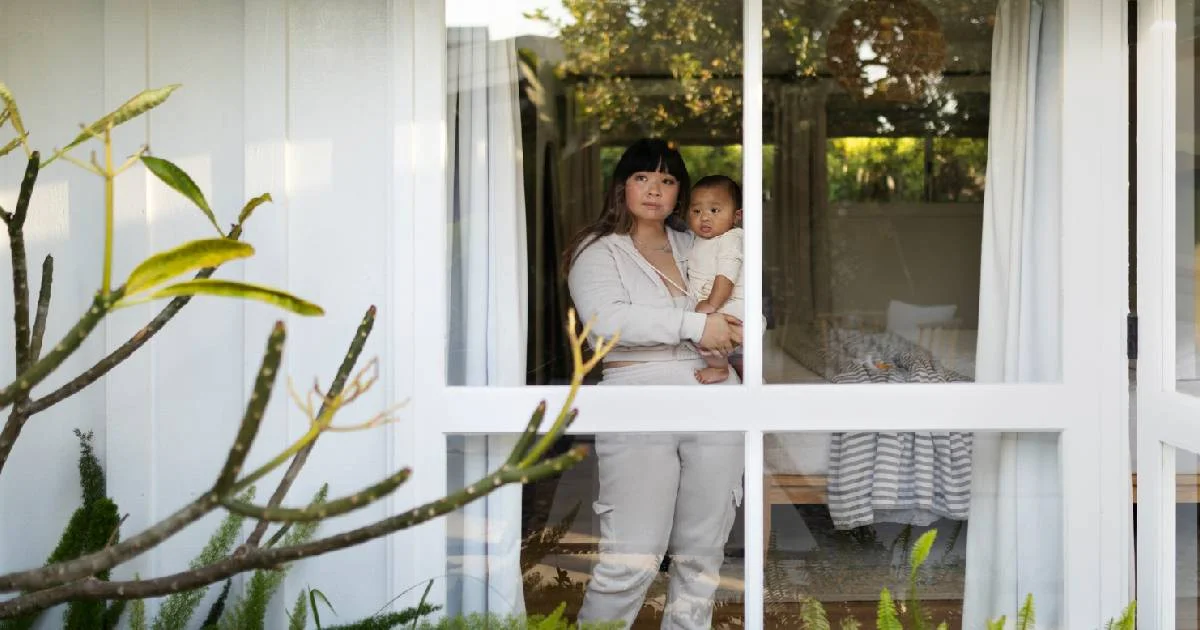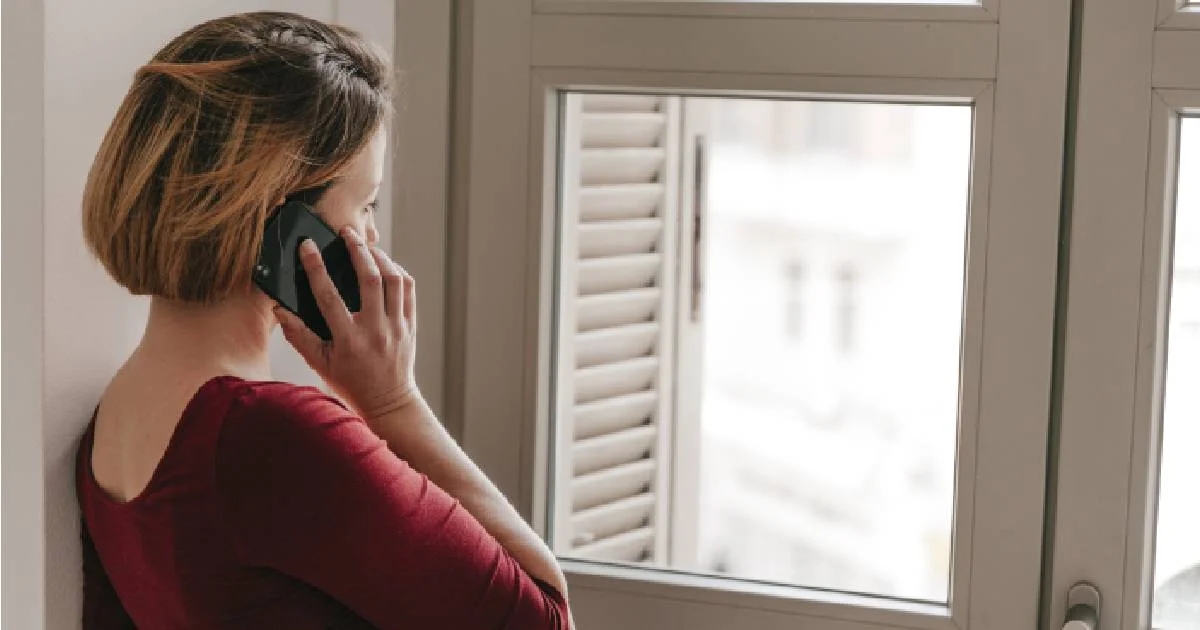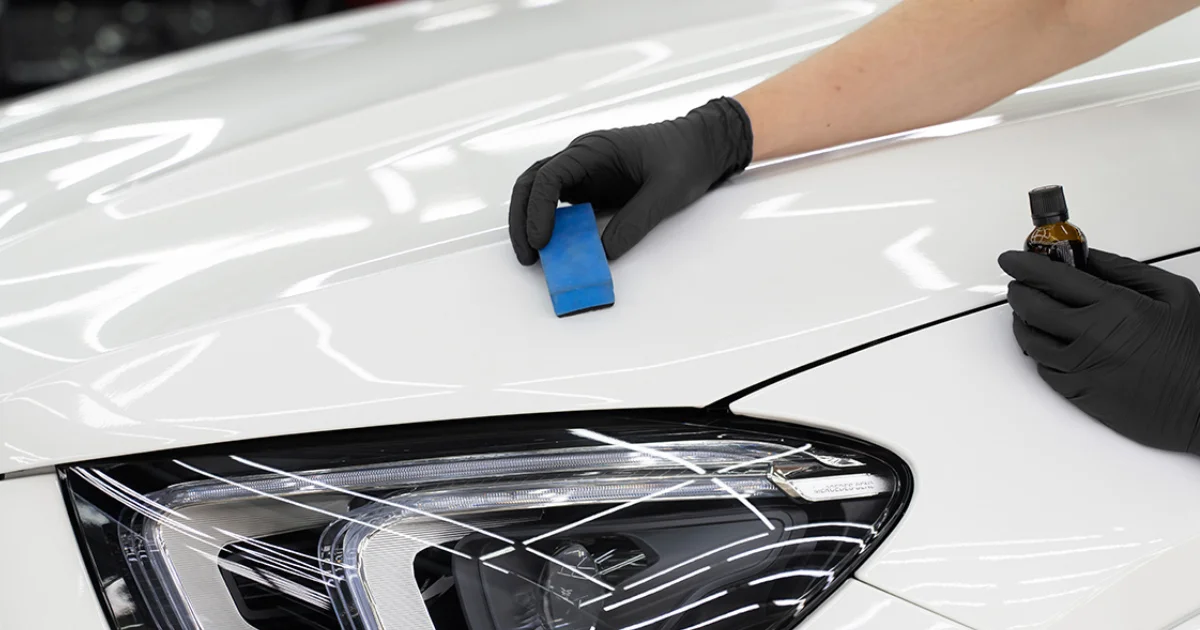
What Factors Should You Consider While Choosing Home Window Tinting?
11 Apr 2024, By AdminIn the realm of home improvement, there's a subtler yet incredibly impactful upgrade that often gets overlooked: home window tinting. Window tinting not only adds aesthetic appeal to your residence but also offers a range of practical benefits, from energy efficiency to enhanced privacy. However, choosing the right window tinting for your home involves considering various factors to ensure you make the most suitable choice. Let's delve into what you should ponder when selecting home window tinting.
Purpose and Goals
Before diving into the myriad options available, it's essential to define the purpose and goals you want to achieve with window tinting. Are you primarily concerned with reducing glare? Or perhaps you're looking to enhance privacy without sacrificing natural light? Understanding your objectives will guide you towards the most appropriate tinting solutions for your home.
Types of Window Tints
- Solar Control Films: Designed to reduce heat and glare from sunlight, solar control films can help maintain a comfortable indoor temperature while protecting your furnishings from UV damage.
- Privacy Films: Ideal for areas requiring increased privacy, these films obscure visibility from outside while allowing ample light to enter your home.
- Decorative Films: If you're looking to add a decorative touch to your windows, decorative films offer an array of patterns, textures, and colors to suit your aesthetic preferences.
- Security Films: For enhanced safety and protection, security films strengthen your windows, making them more resistant to break-ins and impacts.
Climate Considerations
The climate in your region plays a significant role in determining the type of window tinting that will best suit your needs. If you reside in a hot and sunny area, prioritizing solar control films can help reduce cooling costs and minimize sun damage to your interiors. Conversely, in colder climates, you might opt for tints that provide insulation to retain warmth during the winter months.
Legal Regulations
Before finalizing your decision on window tinting, it's crucial to familiarize yourself with any local regulations or restrictions pertaining to tint darkness and reflectivity. Failure to comply with these regulations could result in fines or the need to remove non-compliant tints, so be sure to do your research beforehand.
Quality and Warranty
Investing in high-quality window tinting ensures durability and long-term performance. Look for reputable brands that offer warranties, providing you with peace of mind and protection against potential defects or issues.
Professional Installation
While DIY window tinting kits are available, opting for professional installation is often the preferred choice to ensure proper application and optimal results. Experienced installers have the expertise and tools to achieve a flawless finish while minimizing the risk of bubbling, creasing, or improper alignment.
Budget Consideration
Lastly, consider your budget when selecting home window tinting. While premium options may offer additional features and benefits, there are also more budget-friendly alternatives that provide satisfactory results without breaking the bank. Determine your priorities and allocate your budget accordingly to find the best balance between cost and quality.
In conclusion, home window tinting is a valuable investment that offers both aesthetic enhancement and practical advantages. By carefully considering factors such as your objectives, climate, type of tint, and budget, you can select the most suitable tinting solution to meet your needs. Whether you're aiming to improve energy efficiency, increase privacy, or add a decorative element to your home, the right window tinting can transform your living space for the better.
Book Now

Smart Home Integration: The Future of Window Tinting for 2023
11 Apr 2024, By AdminIn a rapidly advancing world of technology and automation, our homes are becoming smarter by the day. From thermostats that adapt to our preferences to voice-controlled lighting systems, we are witnessing a revolution in the way we interact with our living spaces. Window tinting, once seen as a simple solution for privacy and heat reduction, is also stepping into the future.
The Basics of Home Window Tinting
Before we delve into the future of window tinting, let's start with the basics. Home window tinting involves applying a thin film to the interior or exterior of your windows. These films are designed to reduce the amount of visible light, UV rays, and heat that enters your home. They offer several benefits, including:
- Energy Efficiency: Tinted windows can help regulate indoor temperatures, reducing the need for excessive heating or cooling, thereby saving energy and lowering utility bills.
- Privacy: Tinted windows can provide privacy by preventing outsiders from peering into your home while maintaining your view of the outside.
- UV Protection: Tinted windows block harmful UV rays, protecting your furniture, flooring, and artwork from fading and sun damage.
- Glare Reduction: Tinted windows can significantly reduce glare on screens, making it more comfortable to watch TV or work on a computer.
- Enhanced Security: Some advanced tints can reinforce your windows, making them more resistant to shattering.
Smart Home Integration
The integration of window tinting into the broader ecosystem of smart homes is undoubtedly one of the most exciting developments in the field. Here's how it's evolving in 2023:
- Automated Tint Control: Smart window tinting allows homeowners to control the tint level of their windows with a simple touch of a button or a voice command. Through smartphone apps or smart home systems like Amazon Alexa or Google Home, you can easily adjust the tint to suit your preference, time of day, or specific needs. For example, you can schedule your windows to tint at certain hours to reduce heat and glare during the brightest parts of the day.
- Sunlight Sensing Technology: Many modern window tinting solutions are equipped with sunlight sensors. These sensors can detect the intensity of sunlight and automatically adjust the tint level accordingly. When the sun is at its peak, the tint darkens to block excessive heat and glare. As the day transitions into evening, the tint lightens to allow more natural light into your home.
- Integration with Smart Home Systems: Smart window tinting is now seamlessly integrated with other smart home systems. This means that you can coordinate your window tinting with other smart devices in your home. For instance, if your thermostat detects a rise in temperature, it can trigger your window tinting to darken, helping your HVAC system maintain a comfortable indoor environment more efficiently.
- Voice Commands: Voice-activated controls are becoming increasingly popular in smart homes. Window tinting can now be adjusted with a simple voice command. Imagine saying, "Alexa, tint the living room windows," and watching as your windows respond accordingly. This level of convenience and automation is making life in a smart home even more enjoyable.
- Energy Efficiency: Smart window tinting not only enhances comfort but also contributes to energy savings. By working in conjunction with your smart thermostat, it ensures that your home remains at an optimal temperature. This reduces the load on your heating and cooling systems, ultimately lowering your energy consumption and utility costs.
Conclusion
In 2023, home window tinting has evolved from a simple, passive solution to an integral part of the smart home ecosystem. It not only provides the traditional benefits of privacy, UV protection, and glare reduction but also contributes to energy efficiency and enhances the overall quality of life in your home. With the integration of automation, sunlight sensors, and compatibility with other smart devices, the future of window tinting is undoubtedly bright.
As technology continues to advance, we can expect even more exciting developments in the world of home window tinting. The future is now, and it looks clear, comfortable, and smart, thanks to these innovative solutions that are transforming our living spaces. So, if you haven't considered smart window tinting for your home, it might be time to embrace the future of living comfortably and efficiently.

Is Car Ceramic Coating Worth the Hype?
11 Apr 2024, By AdminWe wish our cars always looked as good as new after years of use! But, no. It doesn’t work like that. After a few years, fading paint, scratches, scuff marks, and corrosion deteriorate the original color and sheen of the paintwork. Is there a way to protect your car’s appearance? Of course! We live in an era of innovation and advancements where the automotive industry has undergone revolutionary changes, and engineers have discovered an incredible way to safeguard a car’s exterior.
Among diverse paint protection methods, car ceramic coating has acclaimed immense popularity across the globe. You may have even spotted cars with ceramic coatings but never recognized them. A ceramic coating proposes a seamless finish and is an excellent option to protect your car’s paintwork.
For all the newbies unaware of ceramic coatings, this blog is the ideal guide to answering your questions. You will learn everything you need to know about this wonder product.
Car Ceramic Coating: An Introduction
Car ceramic coating is made of liquid polymer that chemically interacts with the car’s original paintwork to form a protective layer. It provides semi-permanent to permanent protection. Unlike other car protection films, ceramic coating is not applied on the surface level but on a molecular level. Therefore, it furnishes optimal protection and efficiency.
While wax coating offers only temporary shine and waterproof qualities,ceramic coating is much more durable and resistant to dust and water. When applied, car ceramic coating bonds with the car’s paint, filling in pores and scratches. As it cures, you get a hard and sturdy coating that enhances the longevity of your car’s paint.
Generally, the coating consists of silicon dioxide, which is naturally derived from sand and quartz. Often, titanium dioxide is added to boost the coating’s efficiency.
Now, why do car owners prefer ceramic coating over wax or other coatings? Let’s discuss it in the next section.
The Many Benefits of Car Ceramic Coating
Car lovers are going gaga over ceramic coating, and we have many reasons for that!
- Enhanced Protection: As we said, if you want to protect your car’s paintwork, the ceramic coating does the job exceptionally well! Since it forms a hard layer over the car’s surface, you can expect enhanced paint protection against various elements. No more scratches, fading paint or bird-dropping spots!
- Dust and Water-Resistant: Imagine driving through a dirt track only to see your car has turned into a dirt magnet! You have to thoroughly clean your car to get rid of the mess. However, with car detailing Tauranga, you no longer have to worry about dirt sticking to the surface. Also, you are safe against corrosion because your car’s exterior is now waterproof!
- Promotes Paint Life: Obviously, with the additional protection, your car’s paint will last much longer while retaining its color and gloss. You have better paint protection now from UV rays, stone chips, scuff marks, etc.
- Corrosion Prevention: Cars are prone to corrosion due to water and other liquid spills. Even heavy rain can cause considerable damage to the paint when not maintained properly.
- UV Protection: Who knew cars could be protected from harmful UV rays until the emergence of ceramic coatings? These polymer components act as a barrier against the harmful impact of UV rays that can considerably fade away the car’s paintwork. It also keeps the car’s interior cool and comfortable.
- Easy Maintenance: Since car ceramic coating is hydrophobic, it requires less maintenance. It is easy to clean, and your car remains spotless for years.
Ceramic coating cost varies depending on the quality, durability, andcoverage. Nonetheless, it is an effective way to enhance your car’s aesthetics and safeguard it from surface damage.
.webp)
Top 5 Benefits of Having Your Car Windows Tinted
11 Apr 2024, By AdminIntroduction
Car window tinting has become a popular trend among car enthusiasts, and for good reason. Beyond the stylish appearance it lends to your vehicle, car window tinting offers a plethora of benefits that go beyond aesthetics. In this blog, we will delve into the top 5 advantages of having your car windows tinted, shedding light on the many reasons why this automotive enhancement has gained widespread popularity.
UV Ray Protection
One of the primary advantages of car window tinting is its ability to block harmful ultraviolet (UV) rays from the sun. Prolonged exposure to UV rays can lead to various health issues, including skin cancer. Tinted windows act as a barrier, reducing UV radiation and protecting both the driver and passengers from potential sun damage.
Heat Reduction
On a scorching hot day, the temperature inside your car can skyrocket. Window tinting acts as a barrier against the sun's heat, reducing the interior temperature and making your driving experience more pleasant. By minimizing heat buildup, you can rely less on your air conditioning, leading to improved fuel efficiency and reduced strain on your vehicle's cooling system.
Enhanced Privacy and Security
Privacy is a key concern for many car owners, and window tinting provides an effective solution. Darkened windows make it harder for prying eyes to see into your vehicle, protecting your belongings and ensuring a greater sense of security. This added privacy can be particularly beneficial when parked in public places, reducing the risk of theft and break-ins.
- Glare Reduction:
Driving in bright sunlight can be challenging, with glare from the sun often causing discomfort and safety hazards. Car window tinting significantly reduces glare, providing a clearer and safer view of the road ahead. This is especially valuable during sunrise and sunset, as well as in adverse weather conditions. By minimizing glare, window tinting contributes to improved visibility and overall driving safety.
- Aesthetic Appeal:
While the functional benefits of car window tinting are numerous, there's no denying the aesthetic appeal it brings to a vehicle. Tinted windows give your car a sleek, sophisticated look that sets it apart from others on the road. The variety of tint shades available allows you to customize the appearance of your car, adding a touch of personal style.
What is car window tinting, and how does it work?
Car window tinting involves applying a thin film to the windows of a vehicle to reduce the amount of visible light, infrared radiation, and ultraviolet (UV) rays that enter the car. This film is typically made of polyester and may contain various layers to achieve specific effects. The tinting process helps regulate the amount of light and heat that enters the vehicle, providing several benefits.
Are there any regulations or restrictions regarding car window tinting?
Yes, regulations regarding car window tinting vary by location. It's essential to check and comply with local laws to avoid legal consequences. Typically, regulations address factors such as the level of tint darkness allowed, the percentage of light that must pass through the tint, and whether certain windows can be tinted. Always research and adhere to your region's specific guidelines for car window tinting.
Can I tint my car windows myself, or should I seek professional help?
While some car enthusiasts may attempt to tint their windows at home, it is generally recommended to seek professional help. Professional installers have the expertise, experience, and tools to ensure a proper and even application. DIY attempts may result in air bubbles, uneven tinting, and an overall subpar finish. Additionally, professional installations often come with warranties, providing peace of mind and recourse if any issues arise.
How long does car window tinting typically last?
The lifespan of car window tinting can vary based on factors such as the quality of the tint film, climate, and how well it is maintained. High-quality tint films, when professionally installed, can last anywhere from 5 to 10 years or more. Regular maintenance, such as gentle cleaning with recommended solutions and avoiding abrasive materials, can contribute to the longevity of the tint. If you notice any signs of peeling or discoloration, it's advisable to consult a professional for repairs or replacement.
Conclusion
Car window tinting is more than just a cosmetic enhancement – it's a practical investment that offers a range of benefits, from protecting your health and preserving your vehicle's interior to enhancing privacy and elevating the overall driving experience. If you haven't considered window tinting for your car yet, these top 5 advantages might just convince you to explore this valuable automotive upgrade.
